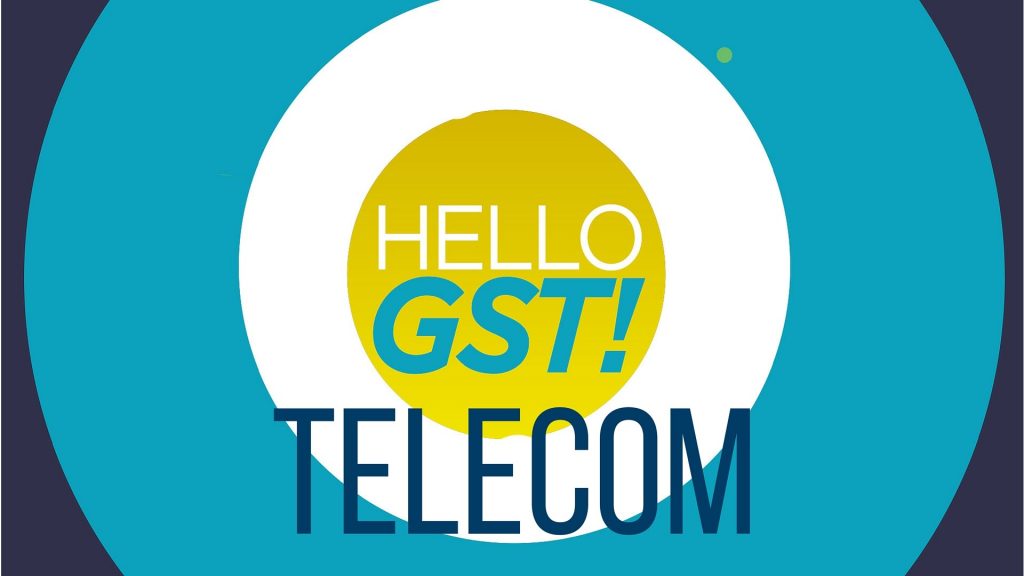GST: IMPACT ON THE TELECOMMUNICATIONS SECTOR
From the conventional belief of being a communication service provider to providing multiple streams of value added services, the telecommunications (telecom) sector has become one of India’s core economic drivers. India is only second to China in terms of the number of connections and subscribers. The sector is also among the top five employment generators in India.
In the present scenario, this sector could be broadly divided into three categories:
- telecom service providers;
- infrastructure providers; and
- equipment manufacturers.
Given the mammoth volume or subscriber connections and the revenue generated from this sector, it is evident that the telecom industry is due for a serious overhaul with the evolving indirect tax scenario i.e. the introduction of Goods and Services Tax (GST). The revenue of the sector is either subject to service tax or VAT. More significantly, there has been the continuous and ongoing problem of double taxation of the telecom services themselves, from both a VAT and a service tax standpoint. Specifically, the taxation of SIM cards, prepaid cards etc. has been a problematic area for a very long time. Hence, with the integration of VAT and service tax into the GST, this problem will be resolved to a great extent.
The concept of ‘Necessity Services’:
One of the major drawbacks of the GST could be the change in the service tax rate from 14% to 20—22%, which will be directly faced by the consumers.
Mandatory annual audit compliance:
Currently, telecom service providers did not have to comply with a mandatory ‘audit obligation’ as per the Finance Act 1994 (as amended) but now they have to.
Status of exemption notification for distributors:
Telecom companies appoint agents and distributors for sale of SIM cards and recharge coupon vouchers were exempted from service tax. This may or may not be available under GST.
Distribution of input service credits:
Telecom companies usually incur high cumulative service costs such as advertising expenses, legal expenses, etc. which are usually borne by the Head office (HO).. The input credit availed for the above is then split across revenue centres through the Input Service Distributor scheme (ISD) under service tax. But under the GST regime, an ISD Scheme or any equivalent is still unheard of.
Mobile wallets:
From mere communication services, telecom companies have grown to include complex services such as value-added services, internet services, advertising services, etc. and the mobile wallet service. Most mobile wallets restrict the utilization of credit money for a specified set of services. Under the new regime of GST, it is expected that a clear inclusion of this service within the service ambit or a clear exclusion of this service as a transaction in money should be distinctly defined, thus ending the debate over its taxability.
Inter-linking charges/charges for access to other circles:
Under the new GST rules, there is a need to check where there would be a tax on the supply of inter-linking services between two branches of the same company, considering if the branches are in the same state or different states.
Place of supply for telecommunication:
Presently, where both the telecom service provider and service receiver are in India, services would accrue at the place of service receiver. But, given its central nature, the complications of chargeability were not pondered upon in depth.
When GST is implemented, it would be pertinent to determine the state that will receive the revenue of the SGST so paid. Consequently, telecom companies will be required to give a detailed explanation as to what could be perceived as the Place of Supply of Service.
Power and Fuel:
In line with global trends and for the greater good of the industry and trade, it can be perceived that electricity duty shall be subsumed under GST. On the other side, even though petroleum has been brought under the GST regime, the central government still reserves the right to levy tax on it.
Sale of SIM cards:
It is not dear whether sale of SIM cards is a sale of goods or provision of service.

